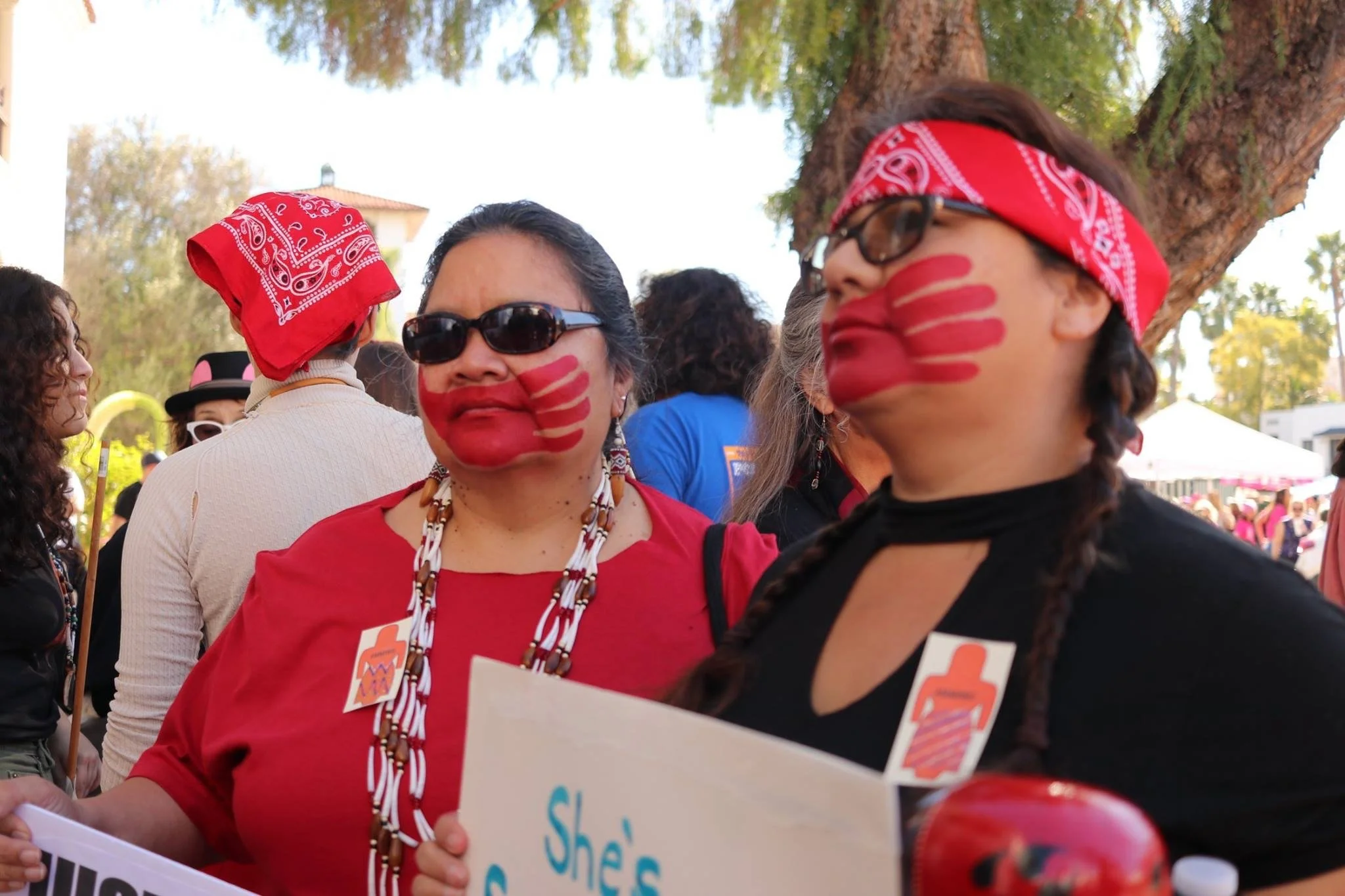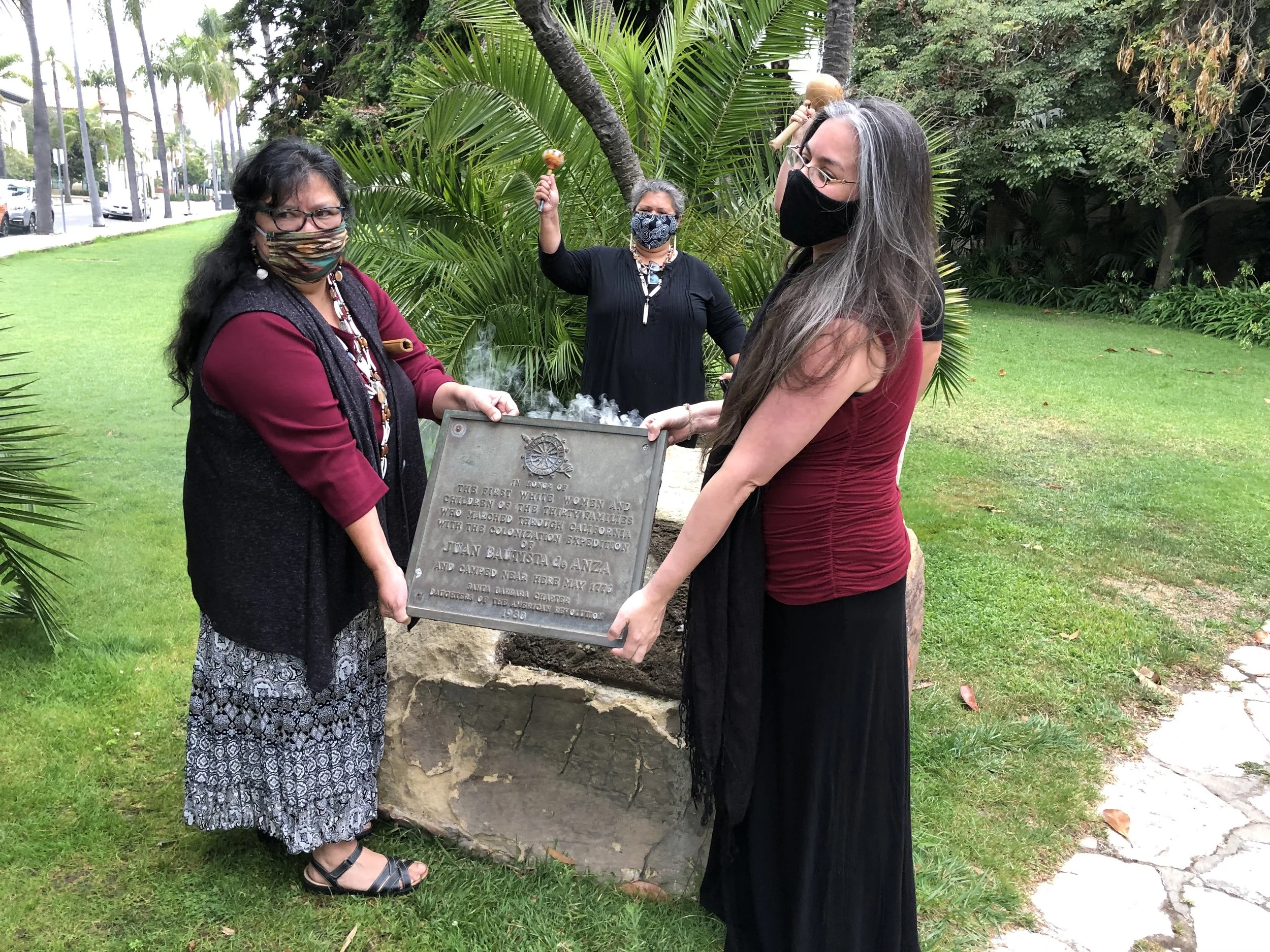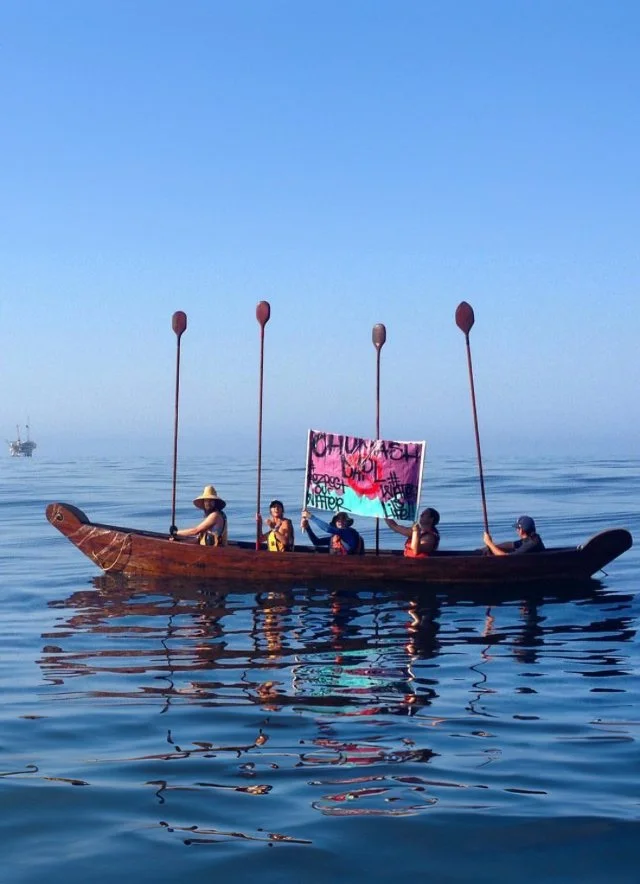
Activism is in our blood—learned from our elders, taught to our children.
At the turn of the century, America began to shape public view of Native people into a romantic erasure: the Indians are all gone. Generations of schoolchildren were taught that we had disappeared. Anthropologists dug up our bones and displayed them as “a past civilization.” Newspaper headlines proclaimed, “The last of the Chumash died today.” Books painted us as “the last of the poor, vagrant, landless, moral-less savages.” As this mythos was shaped, we couldn’t stop it—because we couldn’t risk being seen.
Down through the generations we have been careful, out of necessity.
Careful not to publicly call ourselves Indian.
Careful, so our great-grandparents weren’t all taken to the slave sales in Los Angeles.
Careful, so our grandparents weren’t all taken to Indian Boarding Schools.
Careful, so our parents weren’t all arrested for holding ceremonies.
We have always been here. Just careful. Just waiting—for a time when we had laws, and allies, and some measure of safety. People often speak of Native identity as though it was invented in the 1960s and 70s—but that was simply when it became safer to be seen, to speak out, to become activists for our culture, our children, our future. We didn’t emerge. We endured.
This section highlights just a few of our stories, both present and past—celebrating the strength that defines the Coastal Chumash spirit.
We Join the Global “Hands Off” Movement
Environmental rollbacks threaten our sovereignty, health, and sacred coastal waters—but as Chumash people, we continue to fight to protect our homelands and honor our relationship with the land and sea.
Women’s March for MMIW
Coastal Band women come together to support the MMIW movement, raising urgent awareness about the epidemic of violence and injustice faced by Indigenous women, girls, and Two-Spirit people across North America.
Land Back in Action: Saving the San Marcos Foothills
Following in the footsteps of their parents, who spent decaded fighting for the preservation of San Marcos Foothills—Chumash youth and allies take a stand to protect their beloved foothills—and win.
Removing Symbols of Colonization
Coastal Band women remove colonial plaques from the Santa Barbara Courthouse in a healing ceremony to reclaim truth and honor their ancestors.
Names Hold Power: How Chumash Advocacy Transformed a City Street
From “Indio Muerto” to Hutash Street, and from “Highway 154” to Chumash Highway, Chumash advocacy is reclaiming erased place names—restoring visibility, dignity, and rightful belonging on our ancestral lands.
Standing Rock: A Legacy of Chumash Activism
Standing Rock became one of the most powerful expressions of the ongoing movement to protect water, land, and Indigenous sovereignty—a sacred gathering where our Chumash youth joined thousands of others, standing united in both prayer and purpose.
1992: Fighting for Freedom of Religion—In the Church
In the late 1980’ and early 90’s, the Catholic Church claimed that after 400 years, it was finally recognizing Native religions as valid—but we had to fight to make that recognition mean something.
1988: Marching for Truth, When Native Leaders Called Out Reagan’s Racism
In 1988 Coastal Band members and their allies marched on President Ronald Reagan’s ranch to protest his insulting remarks towards Native people. Coastal Band Chairman Bob Rivera and other tribal leaders across the country were invited to the White House for an apology from Reagan.
1981: Chumash Unity at Diablo Canyon
Members of Coastal Band joined thousands in the 1981 protests at Diablo Canyon Nuclear Power Plant, standing on the frontlines to aid the Northern Chumash in their protection of the ancestral lands and waters there.
1978-1979: Occupation of Pt. Conception (Humqaq)
In 1978, Chumash activists and allies occupied the sacred site of Humqaq, or Point Conception, to protect it from a proposed LNG plant—successfully halting the project and preserving what is known as the Western Gate, a sacred site for Chumash people.
1970’s-1990’s: A New Era of Collaboration for Chumash Sovereignty and Stewardship
Through new collaborations with environmental agencies, archaeologists, and universities, the Coastal Band strengthens efforts to protect Chumash lands, waters, and sovereignty—ensuring cultural survival for generations to come.












